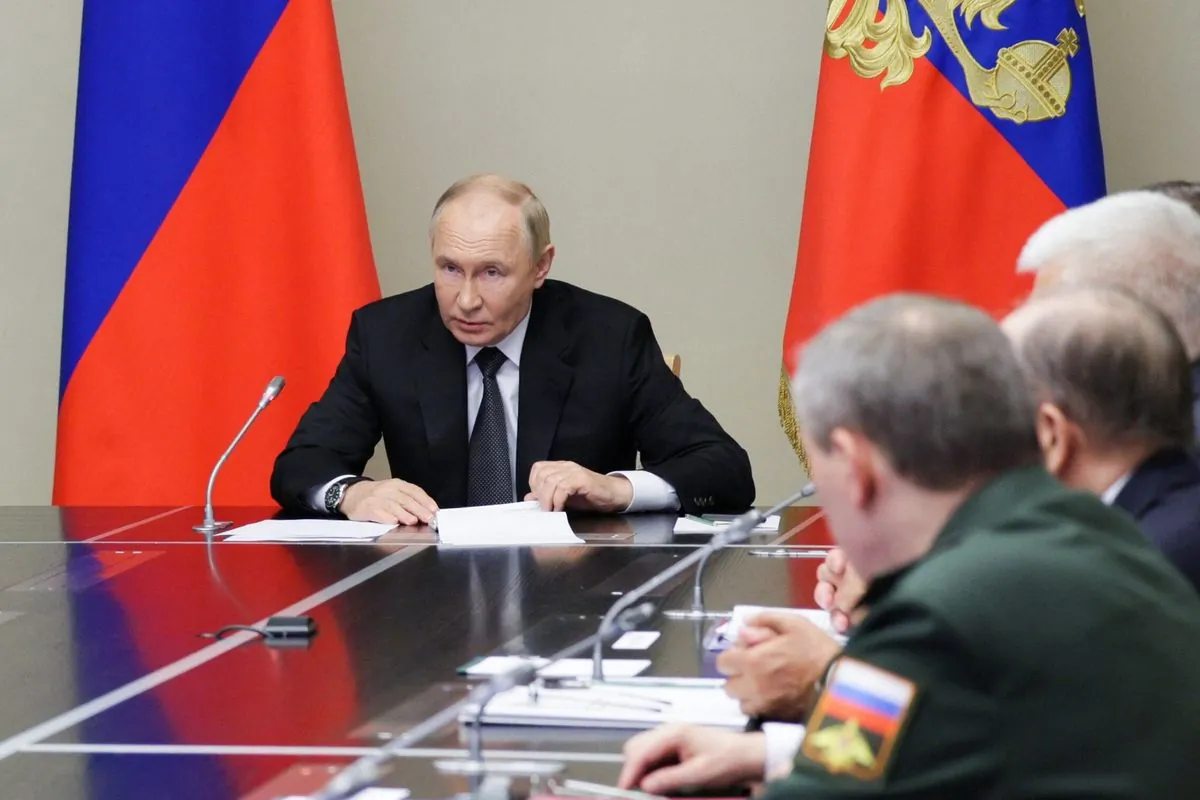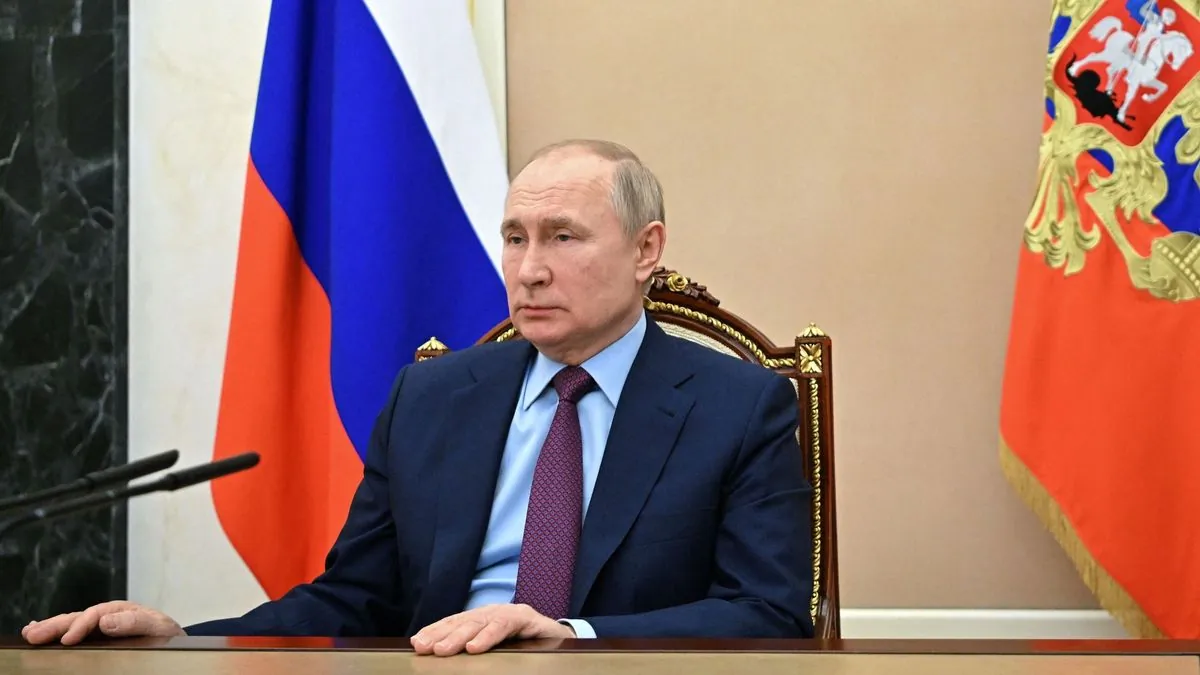Putin's Slow Response to Kursk Incursion Highlights Leadership Weaknesses
Vladimir Putin's delayed reaction to Ukraine's occupation of parts of Kursk region exemplifies a pattern of indecisive crisis management, raising questions about the effectiveness of his leadership style.

Vladimir Putin's sluggish response to Ukraine's recent incursion into the Kursk region has once again highlighted the Russian leader's tendency to freeze in the face of crises. This pattern of delayed action, contrasting sharply with his aggressive rhetoric, has become increasingly apparent since the full-scale invasion of Ukraine began in February 2022.
The Kursk incident marks the fourth significant challenge to Putin's authority since the war's onset, following the initial failure to topple the Ukrainian government, the rebellion led by Wagner Group chief Yevgeniy Prigozhin, and the attack on the Crocus City Hall concert venue. In each case, the Kremlin's response has been hesitant and slow.
Tatiana Stanovaya, founder of R. Politik, notes: "It's always the same style. Putin likes to keep everything secret. When he appears publicly, he doesn't say much. He prefers not to be alarmist."
This leadership style has led to a situation where top officials often conceal failures to avoid displeasing the president. For instance, General Valery Gerasimov, Chief of the General Staff, initially falsely claimed that the Ukrainian assault on Kursk had been halted.

During a televised meeting with security officials, Putin appeared visibly unsettled, reading from handwritten notes and abruptly interrupting the acting governor of Kursk when he attempted to disclose the full extent of the incursion. The president's response was to simply order officials to expel Ukrainian forces, without providing any concrete strategy.
Mark Galeotti, a Russian security expert at the Royal United Services Institute, observes: "This is Putin expecting other people to do all the hard work, and he'll claim the credit for anything that goes well, and likewise, he'll blame people for anything that goes badly."
The slow response to the Kursk situation has exposed weaknesses in Russia's top-down autocracy, which operates largely on fear and punishment. Eleven days into the operation, Ukraine claims to occupy around 386 square miles of territory, with over 180,000 Russians evacuated from their homes.
Despite these setbacks, analysts suggest that Putin's grip on power remains secure, even as his authority is undermined. The Russian elite and public have grown accustomed to unpredictable situations and feel powerless to effect change.
The ongoing conflict has seen Ukraine demonstrate resilience, but it also faces increasing pressure to negotiate. Russia continues to advance in parts of eastern Ukraine, such as near Pokrovsk in the Donetsk region.
Putin has dismissed the prospect of peace talks, maintaining a maximalist position. In a recent poll by the Levada Center, 58% of Russians now support ending the war, although 76% oppose making concessions to Ukraine for peace.
Some pro-Kremlin commentators have begun to express concerns about potential defeat. Karen Shakhnazarov, a regular on state television, warned: "We could lose if such blunders continue. This isn't defeatism. This isn't scaremongering. It's just an absolute understanding of the price that we and our motherland will have to pay."
As the conflict continues, Putin's leadership style and Russia's ability to adapt to changing circumstances on the battlefield remain under scrutiny.
"We could lose if such blunders continue. This isn't defeatism. This isn't scaremongering. It's just an absolute understanding of the price that we and our motherland will have to pay."


































